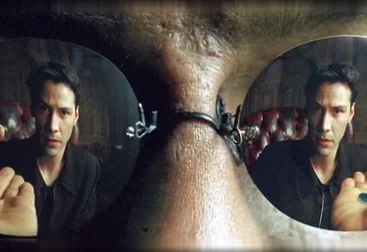“Follow your passion” is common career advice, but it may be a terrible idea. Here are a few reasons why.
The average career is around 80000 hours. That’s 40 hours per week, 50 weeks per year, for 40 years or, more succinctly, a third of your life. So, it would be great if that time was spent doing something you actually enjoy doing.
“Follow your passion” is the most cliched career advice out there. The idea is enticing, if you do something you love, it’ll never feel like work. Although it’s well-intentioned, this advice can be misleading and sets us up for disappointment.
Cal Newport outlines several arguments against the passion hypothesis in his book ‘So Good They Can’t Ignore You’. Here are some of the most compelling.
A career has many aspects
The passion hypothesis suggests that passion is all you need for a fulfilling career. In reality, there are several other factors that determine how much you enjoy your job. Newport argues that it’s not so much the type of work, but other qualities like flexibility, autonomy, and creativity that give us job satisfaction. These qualities have little to do with our innate passion but are found in any number of fields. You may have dreamed of becoming a professional footballer, and although your passion would be satisfied, a lack of freedom and autonomy may turn that dream into a nightmare.
Competition
Humans are social creatures, the thing you’re passionate about is likely to be what your peers also love. That means competition! One survey of Canadian university students revealed that the vast majority (84%) were able to identify their passions. But 96% of the identified areas were sports and arts-related. These areas only count for 4% of the job market. Only those with exceptional talent, ability and/or luck can create a successful career in these areas. This explains where the “starving artist” stereotype arises from.
Different skillsets
Enjoying an activity in your free time doesn’t necessarily mean you’ll get the same satisfaction from a career in it. Once your passion turns into a job, it becomes just that, a task you must do. The skills needed to excel at something are also vastly different to the skills that need to successfully make a career out of it. You might be able to bake a delicious cake but that doesn’t mean you can manage a bakery.
Passions change
Our passions change with time; Following your passion looks vastly different to a 20-year-old vs a 40-year-old. The end-of-history fallacy causes us to underestimate how much we’re likely to change in the future. We are in constant flux and our passions are likely to be too. Think of how different your interests were 5 years ago, it’s very likely that your current interests will transform just as much in the following 5 years.
My story
I studied mechanical engineering for four years at University believing it was my passion. Halfway through, I realised there were several aspects of engineering which I didn’t enjoy. One of the least enjoyable aspects of my degree was programming in Matlab. I avoided it at all costs because I thought had no talent or desire for writing code.
I was looking for alternative career paths to engineering and the perks of becoming a software developer appealed to me. I didn’t wake up one day and realise my love for software development, but I slowly built an interest in it. As I got more experience and my skills improved, I started enjoying coding a lot more and I can now say I have a passion for it. Yes, there are other things I enjoy doing more than coding, but the job market is not going to pay me to do those.
Conclusion
The harsh truth is, the job market doesn’t care about your passion, it only cares about what it needs. Fortunately, passions don’t have to be chased, they can often be developed. Keeping your strengths and hobbies in mind when looking for a career can help you find work you enjoy, but making it the only criterion is a recipe for disappointment.
More Career Advice
Instead of focusing on your passion, decide what qualities matter to you most in a career. Become someone who has the leverage to choose a job that offers those qualities. This can be done by building your identity capital.
The passion hypothesis can push us into a fixed mindset. We end up believing that passion should come with ease and that a “dream job” is waiting out there waiting for us. This mindset can cause career stagnation. Read more here.







